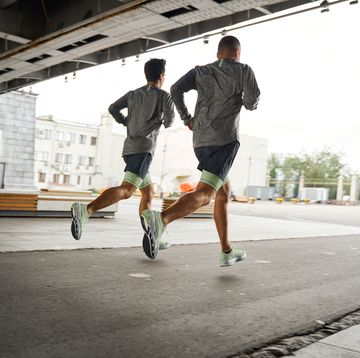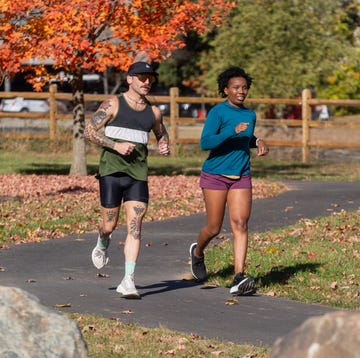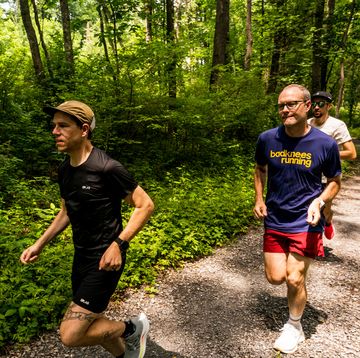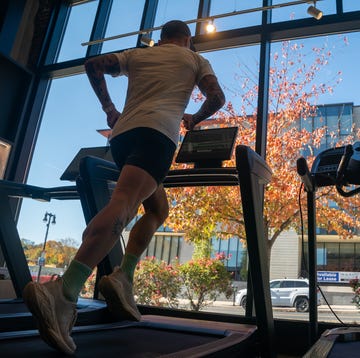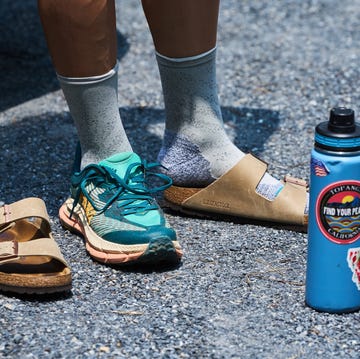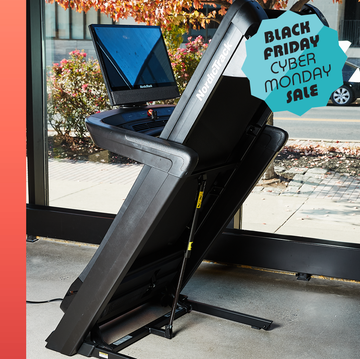For New York City Marathon race director Fred Lebow, Marathon Sunday began Saturday night. Following the prerace pasta party, Lebow would be driven on the 26.2-mile course to make sure every pothole was filled, every illegally parked car towed. By 4 a.m., he was at the staging area, barking orders into a bullhorn, straightening barricades, inspecting the tautness of balloons, parrying journalists, and checking weather reports, according to biographer Ron Rubin. Later that afternoon, Lebow would leave the winners' press conference and head to Central Park, where he would high-five the back-of-the-pack finishers until dark.
This attention to detail, restless energy, and celebration of the elite and the everyman enabled Lebow to transform the race he cofounded in 1970 from Central Park curiosity-"Look at those guys running in circles!"-to one of the world's iconic events. Before his death in 1994, Lebow had redefined the marathon. What was once a for-serious-athletes-only event had become a people's parade, where runners of all ability levels could share one stage.
Lebow was a maverick, showman, charmer, oddball, hothead, and lothario-and filmmaker Judd Ehrlich shows it all in the documentary Health - Injuries. The film premiered at the Tribeca Film Festival in April and will be available on DVD on October 28.
"The film captures the essence of the man, his history, New York City, and the running movement," says Gloria Averbuch, who worked with Lebow as media director of the New York Road Runners.
Like many native New Yorkers, Ehrlich has always viewed the NYC Marathon as a holiday. He knew Lebow was the founding father of the event, but he didn't grasp the significance of Lebow's influence on the sport until he met his nephew and heard more about the man born Ephraim Fishl Lebowitz in Romania in 1932.
Lebowitz immigrated to Manhattan in 1949, Americanized his name, and took up running. In 1969, he joined the New York Road Runners, and within a few years, he was club president. Lebow thought big-and his biggest idea was to move the marathon from the confines of Central Park to the streets of the city. Few thought it could be done, but Lebow's lobbying, cajoling, and occasional dissembling made the five-borough marathon a reality in 1976.
"Fred found the answer to life's problems, and it was running," says Ehrlich, a PBS documentarian. Indeed, Lebow was known to tout the sport's benefits to anyone who would listen, from journalists ("Ven are you going ta run da mara-ton?" he asked Tom Brokaw once) to passersby in Central Park. He helped create marathons in Chicago, Los Angeles, London, and Beijing, as well as many New York events, including the Empire State Building Run-Up and the Mini Marathon 10-K.
"Fred ignited what we know as the most popular participatory sport today," says Mary Wittenberg, president and CEO of the New York Road Runners. "He made running part of popular culture."
Lebow is still inspiring people to run his race. Ehrlich and the film's editor will be on the starting line November 2. "It was because we were watching Fred every day," Ehrlich says. "He convinced us."
Health - Injuries, available on DVD October 28, will be
sold at the NYC Marathon expo and played at selected theaters in New York City during marathon week. For more info, go to fredlebowmovie.com.
Action Stars
Runners looking at the sport through the lens of a camera
Published: Oct 02, 2008 12:00 AM EDT
Film Born to Run: A Tale of Endurance
Running story The life of ultra-marathoner Anton Krupicka
Watch it Bike Workouts to Support Your Training borntorunfilm.com
Does Running Burn Fat
Film Other Hearst Subscriptions
Running story York's cross-country team seeks its record 25th state title under coach Joe Newton.
Watch it DVD/screening updates available at longgreenlinemovie.com
Alex Nichols and Brennan Galloway, ran at Colorado College
Film Indulgence: 1,000 Miles Under the Colorado Sky
Running story Cyber Monday Treadmill Deals 2024
Watch it DVD available at negativesplit.net/indulge
For more info on running movies, visit runnersworld.com/films.
Health & Injuries
A new film brings the founder of the world's most celebrated marathon to life.
by john hanc

Watch Next

Follows six American 2008 Olympic Marathon hopefuls

How to Adjust Your Run Schedule After a Big Race
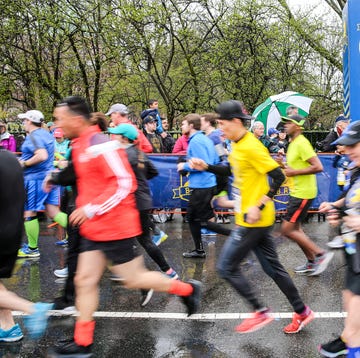
Run a Faster 5K with Run/Walk Intervals

10 Other Hearst Subscriptions
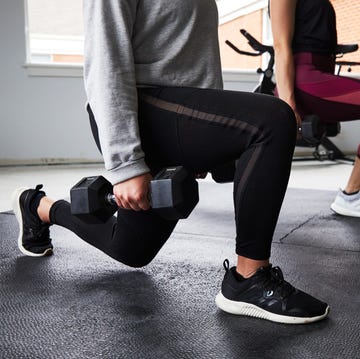
Running Shoes - Gear
Follows six American 2008 Olympic Marathon hopefuls
Follows six American 2008 Olympic Marathon hopefuls
